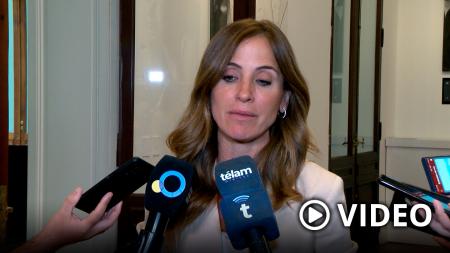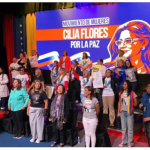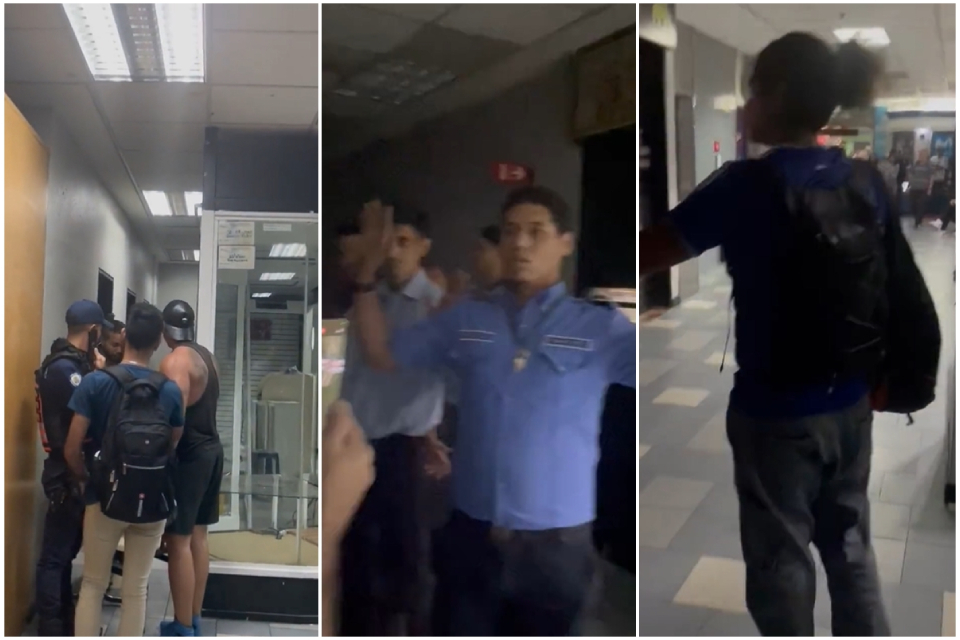The Minister of Social Development, Victoria Tolosa Paz, presented this Thursday at Government House a program that, in a first stage, will be implemented in 15 municipalities of Greater Buenos Aires and that seeks to improve the conditions of households in situations of critical social vulnerability that have members with health problems, chronic illness, disability, functional diversity and people with oncological diseases.
In an act held in the Women’s Hall of the Casa Rosada, the minister presented the details of the program and pondered the agreement of 10 million dollars for financing with the Financial Fund for the Development of the Cuenca del Plata (Fonplata).
“We are witnessing a new social policy that will start with 15 municipalities but will reach the next stages for other regions and other suburbs of Argentina”reported the minister in dialogue with the accredited press at Government House.
The official especially highlighted the articulation with the municipalities, which will be the ones to detect the future beneficiaries, with the National Agency for Disability and with the National Cancer Institute.
“We must not stop thinking about health in an integral way as Ramón Carrillo taught us. You cannot look at the health condition if it is not in an integral way of the people that we want to offer not only the right to be cured but also to repair that drama they are going through”, he explained.
The MejorAr Tu Hogar program, according to Tolosa Paz, is not “modular” since “in some cases it will be for the improvement of a room, a bathroom, or the construction of an access ramp, that is, what is modified when there are people who have to return home after treatment for a chronic illness.
“It is a program that the municipalities did not have when people went to ask for help”he added.
In the first stage of the program, the agreement will be carried out with the municipalities of Almirante Brown, Berazategui, Esteban Echeverría, Ezeiza, Florencio Varela, Hurlingham, Ituzaingó, José C. Paz, Malvinas Argentinas, Merlo, Moreno, Quilmes, San Fernando, Saint Michael and Tiger.
According to the agreement signed by the Ministry and the municipalities, lThe national social portfolio will be in charge of providing technical support to the municipalitiesverify that household eligibility criteria are met, evaluate and approve home improvement projects, and perform overall performance monitoring, bidding, and auditing.
For their part, the municipalities will be in charge, through the Municipal Execution Unit, of pre-identifying the homes, the design of works, the survey and monitoring of homes, and the verification of the progress of the works.
In addition, the implementation of the program will be carried out agreeing on action criteria to prioritize urgent cases with the National Agency for Disability and the National Cancer Institute.
Asked by the press about the encampment that took place from yesterday until today at noon by social organizations in front of the headquarters of the ministry that she leads, Tolosa Paz said that “the instance of the extortion of the piquetero unit against the Ministry and the minister, they do not allow dialogue”.
“There is no dialogue when someone uses the poorest in Argentina to make them sleep outside their home, with boys and girls on 9 de Julio, it is not the Argentina we want to build,” he said.
For his part, the former Minister of Development and community chief of Hurlingham, Juan Zabaleta, referred to both the MejorAr program and the claims of the piquetero organizations.
“It is very important that the national government, through the Ministry of Social Development, can strengthen us with resources, and with this type of program to the municipalities that daily assist people who live in vulnerable situations and fundamentally those who need from very complicated physical conditions that we are present”, he explained.
In this sense, he said that the mayors are accustomed “to the fact that in this government there are public policies that every day attend to and protect those who have difficulties, those who have less, those who need the most.”
When asked about the protests of social movements for the reduction of plans of the Potenciar Trabajo program, Zabaleta maintained that “there was no drop in plans”, and recalled that it was he during his tenure at the head of Social Development who “asked for the AFIP report to cross data”.
He opined that there are “two possible paths” with the beneficiaries: “You have to take care of them because they need this program and second, you have to give them opportunities based on the fact that this plan can incorporate them into formal employment.”
“No one has to complain, what is happening seems good to me; we had started an audit with public universities and Victoria decided to do it biometrically to make it faster and there is a result of almost 100,000 beneficiaries who have not validated their identity,” said the mayor of Hurlingham, who pointed out that now “those resources are going to move to the productive sector”.


















